IS are 'demolishing' ancient sites in Iraq
- Published
It is believed that Islamic State militants have destroyed ruins at the ancient sites of Nimrud and Hatra in Iraq. They have also destroyed museum artefacts in Mosul.
Many people who have visited these areas in the past, have been in touch with BBC News to share their pictures and memories of these two archaeological sites.
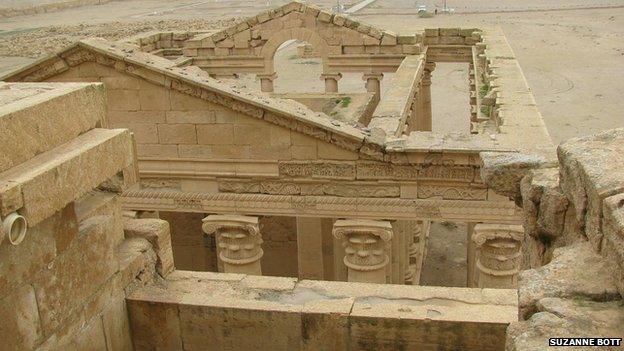
Dr Suzanne Bott lived in Mosul between 2008-2010 as a US State Department Reconstruction and Cultural Heritage Advisor. She says, 'I feel the greatest grief for future generations who will not be able to see these magnificent sites and will not be able to study and learn so much more about the ancient civilizations that we have been able to do'.
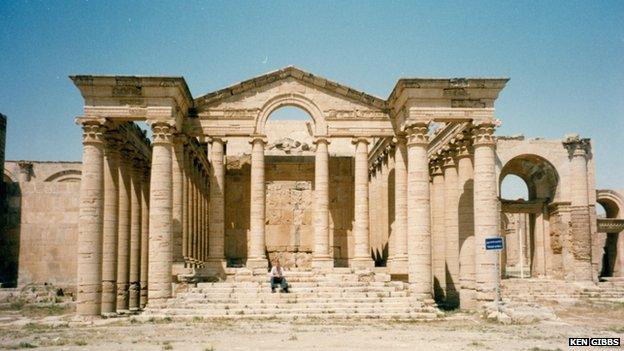
Helen Ayash Hill who lived in Iraq from 1968 to 1999 and visited Nievah, Nimrud, Babylon and Hatra said: 'It grieves me to hear the news about all this mindless destruction'.
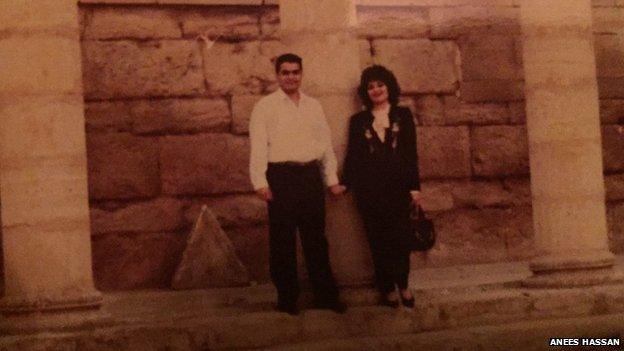
Dr Anees Hassan got married at Hatra. The Baghdad resident visited the sites twice in 1988 and 1993. He recalls: 'We had planned to spend time in a luxury hotel in Mosul before our marriage. We were with a tour group and while on our way to Mosul we were suddenly told we were first going to stop at Hatra. So we got married in Hatra instead with the sounds of howling wolves outside! It is a place we will never forget. Now they are destroying it. It really breaks our hearts.'
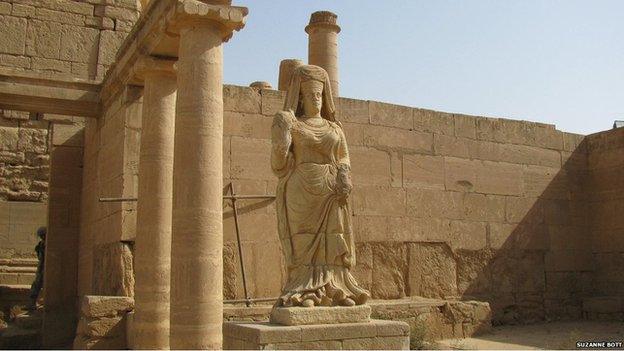
Felicity Arbuthnot visited Hatra many times. She recalls her last visit in 2008: 'When I last visited, I stood in front of the statue of a beautiful, ethereal woman alone in the azure dawn'.
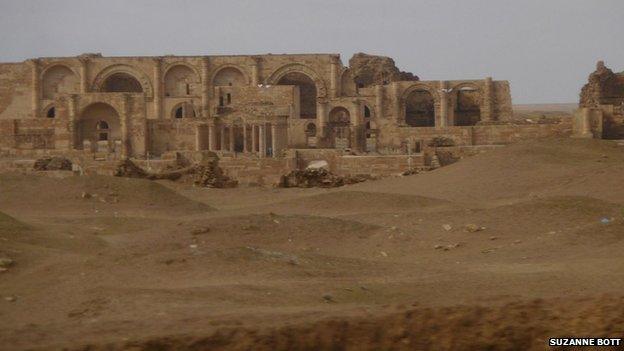
Demaret Patrick who visited Nimrud and Hatra in 1976 remembers: 'We were driving back to Baghdad from Nimrud. I asked my driver to turn towards Hatra. We reached there around 1700. I was the only visitor except for one Iraqi family who arrived there two hours later. I stayed at Hatra a full day to feel the atmosphere of the city. The reconstruction at that time was handled by some Yugoslavian workers and archaeologists. I had a crate of beer in my trunk and shared it with them, a few Iraqis also drank the beer. It was an evening to remember. It was a period of freedom and peace in Iraq'.
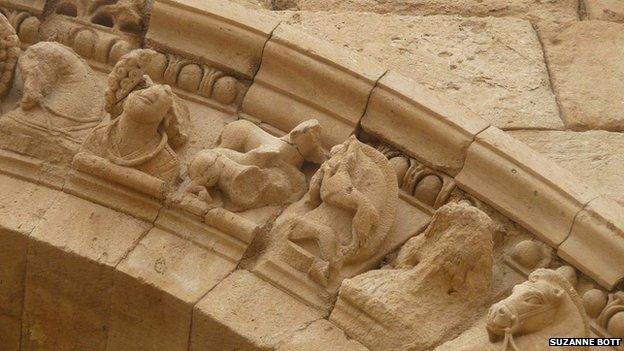
Caroline Meade who visited Hatra several times during summer of 1982 said she is grieved by the news of the destruction of the historic city. She recalls: 'I would be driven for miles along a straight and very boring road through scrub and desert until on the horizon the remains of the ancient city could be seen. In the days of Saddam Hussain there were no tourists. I always promised myself I would return one day. It is with enormous sadness that I realise that even if I do, Hatra will be gone. The irony is that the Parthians who built Hatra were able to defend it from the Romans but both cultures were able to assimilate parts of each others culture into their own. Not only has the fabric of this extraordinary city been lost but the ethos on which it was built, defended itself and remained has gone too.'
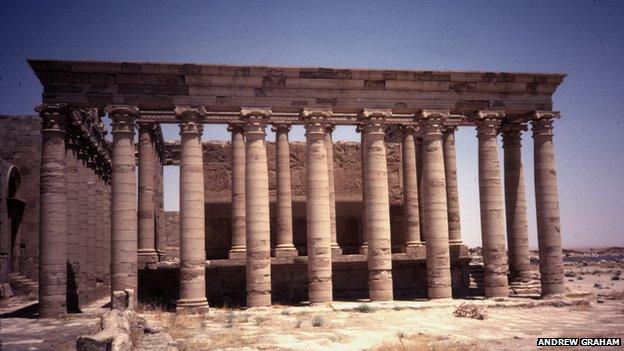
John B Grout, who is a PhD student at Royal Holloway studying Syrian and Iraqi antiquities told us: 'The war against IS has affected millions, but this childish destruction of ancient ruins affects us all; it is as much a crime against humanity as any of their other depredations.'
Email your pictures to yourpics@bbc.co.uk, external, upload them here, external, tweet them to @BBC_HaveYourSay, external or text 61124. If you are outside the UK, send them to the international number +44 7624 800 100.
You could also send us pictures on WhatsApp. Our number is: +44 7525 900971.
Read our terms and conditions.